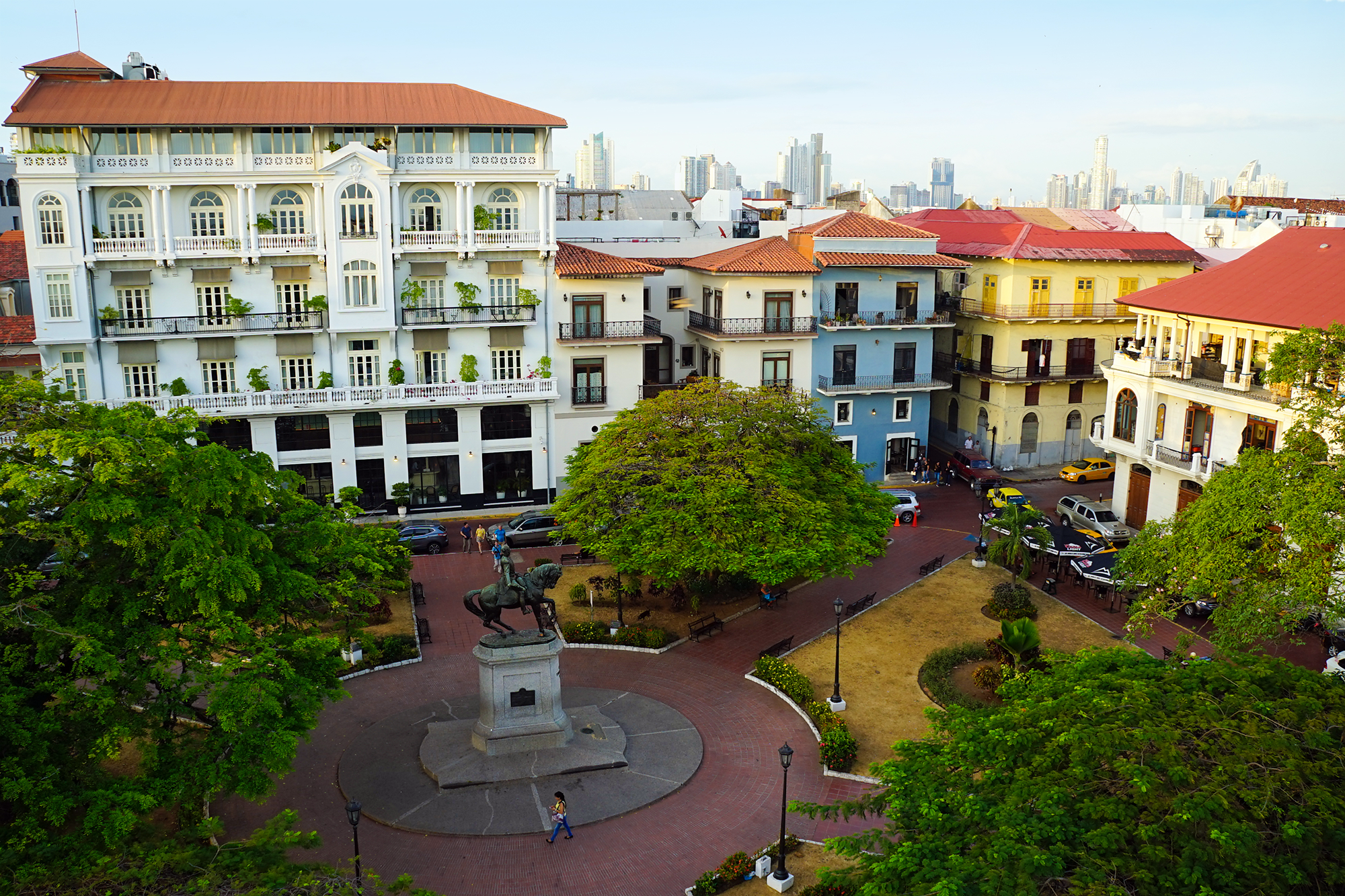FJC celebrates the release of partner organization The Cultural Heritage Finance Alliance (CHiFA)’s report Impact and Identity, Investing in Heritage for Sustainable Development. The white paper makes the case for historic resources as investable assets for the comprehensive and sustainable revitalization of many at-risk and culturally significant communities throughout the world. Particularly timely, the report reflects on successful models to define a path forward that is an antidote to environmental degradation, civic erosion, the loss of irreplaceable cultural treasures and the displacement of local populations.
The report presents studies of six examples from across the world where heritage investment has restored vibrancy to historic urban centers that had been in economic and cultural decline. A housing investment company in Amsterdam, a World Bank loan in Fez, a visionary private investor in Mexico City, entrepreneurial businesses in Panama City and Yangon, and a government-supported loan program in the UK succeeded in catalyzing more than a billion USD in leveraged capital.
Dynamic success requires a complement of NGO engagement, private investment and mission-motivated entrepreneurs who together can advance heritage preservation at the urban and district levels.
FJC formed a strategic partnership with CHiFA last year as loan servicer and finance administrator. As CHiFA raises philanthropic loan capital to invest in sites globally, FJC’s role will be to manage the operations of aggregating and deploying these funds, including servicing for its international project loan fund. This arrangement will allow CHiFA to remain lean and focused on mission, with FJC leveraging its scaled operational platform to deliver back office support and ancillary services. FJC will also manage payments for most of CHiFA’s day to day expenses.
The Cultural Heritage Finance Alliance (CHiFA) was founded in 2019 to promote heritage-led regeneration through innovative financing solutions. Its goal is to position historically and culturally significant built environments as anchors of environmental, social and economic development. Bonnie Burnham, president and founder of CHiFA and president emerita of the World Monuments Fund, stated: “Preserving heritage is among the targets set by the UN Sustainable Development Goals, but it is not on the radar screen of investors and institutions who are aligning behind sustainable development. And yet there are inspiring and highly impactful examples of how it can transform the places we live, for the better. We want to call attention to these examples so that people around the world can learn from them.”
Public agencies are responsible for heritage preservation in most countries. But with an increasing number of sites under protection, decreasing budgets, and low political priority, these agencies face a crisis of inadequate resources. There is a tendency to focus on landmark structures, whereas the more encompassing urban fabric — where people live and work — offers the greatest potential for impact. While public commitments are necessary, dynamic success requires a complement of NGO engagement, private investment and mission-motivated entrepreneurs who together can advance heritage preservation at the urban and district levels. Currently, no entity exists within the heritage conservation field to facilitate these partnerships and to align capital to bring projects to fruition.
CHiFA’s research, conducted over the course of 2020, has revealed a spectrum of successful models. The full case study analyses are linked to the appendix, and will be released as a second volume in early April 2021.
Gary Hattem, a co-founder of CHiFA and former head of Global Social Finance at Deutsche Bank, concluded: “The experiences, ideas, strategies, and plans presented in this paper explore a new frontier: that of how to go about healing our planet and preserving the richness of the world’s cultural assets. CHiFA builds upon lessons learned to identify a financially viable ecosystem capable of validating heritage sites by leveraging their irreplaceable value to the benefit of existing residents.”




